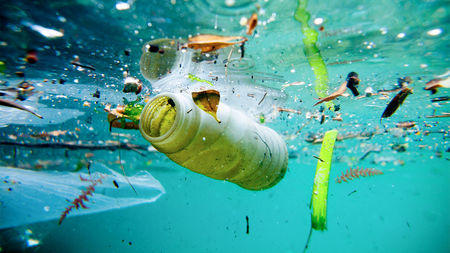Activists welcomed a goal set by the Group of 20 major economies’ to reduce additional plastic trash leaking into the ocean to zero by 2050, but said it avoided getting at the heart of the problem – slashing the output of wasteful, single-use plastics in the first place, reports Trend citing to Reuters.
They also said the target date was too far away and the limited number of steps to proposed by the G20 was voluntary, not legally binding, limiting their effectiveness.
“It’s a good direction,” said Yukihiro Misawa, plastics policy manager at WWF Japan. “But they’re too focused on waste management.
“The most important thing is to reduce the excessive amount of production on the global level,” he said.
The world produced about 242 million tons of plastic waste in 2016, according to the World Bank. Some 8 million of that enters the ocean annually, with China and Indonesia being the biggest offenders, a study in the journal Science showed.
Plastic ocean trash has sparked public outrage with the spread of images of plastic debris-strewn beaches and dead animals with stomachs full of plastic.
G20 host Prime Minister Shinzo Abe wanted to make tackling the issue a priority at the G20 summit in Osaka this past weekend. He has said he wants Japan to lead the world in this mission, including by developing biodegradables and other innovative alternatives.
The final communique released on Saturday said the group had adopted an “Osaka Blue Ocean Vision” to reduce additional marine plastic litter to zero by 2050, but provided few details on how that would be achieved.
Members would adopt a “comprehensive life-cycle approach” by improving waste management and finding innovative solutions, it said.
At a gathering of G20 environmental ministers two weeks before the summit, delegates drew up a framework of steps that countries could take to address plastic ocean waste, but made it clear the measures were voluntary.
For these goals to stick, they need to be legally binding, activists said.
To reach this objective, Japan said it will provide developing countries with financial and practical help to develop capacity to cope with plastic garbage and draw up national action plans. It will also provide waste management training for 10,000 officials in countries around the world by 2025.
Many countries, including more than two dozen in Africa, have banned plastic bags, and the EU has voted to outlaw 10 single-use plastic items, including straws, forks and knives, by 2021.
Japan, which is the world’s No. 2 consumer of plastic packaging after the United States, is considering a bill that would require retailers to charge customers for plastic bags.
While steps to improve recycling and waste management and change consumer behavior are important, authorities are avoiding taking steps to restrict plastic waste and plastic production, activists said.
“Ultimately, this is very disappointing,” said Neil Tangri, global plastics policy adviser at the Global Alliance for Incinerator Alternatives in Berkeley, California, said of the G20 statement.
“The focus is on collecting and disposing of plastics instead of reducing the quantity produced,” he said. “Japan has the opportunity to lead on this issue by reducing the production and use of plastic. They’re fumbling the opportunity.”







